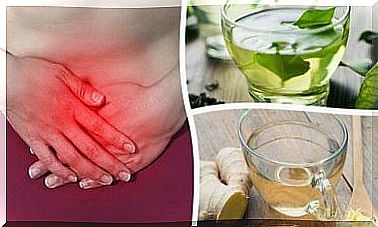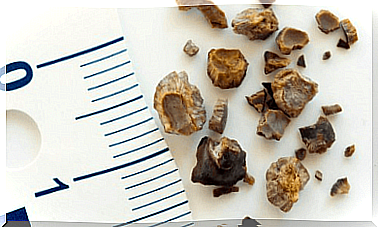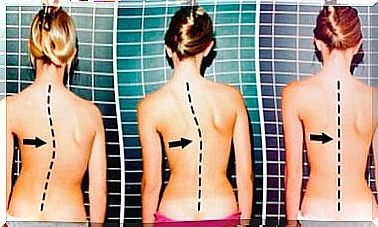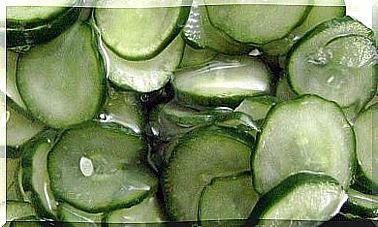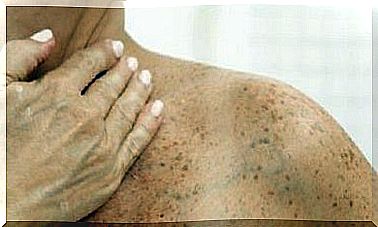High Fat Diet And Risk Of Colorectal Cancer
Colorectal cancer is very common. In addition to genetics and age, a high fat intake increases the risk of developing it. Learn more in this article.

Did you know that a diet high in fat can increase the risk of colorectal cancer? Among the factors that predispose to the development of this oncological pathology, the diet is the only one that can be changed. Therefore, it is essential to learn how to prevent it through nutritional guidelines.
Thus, in 2018, 3.9 million cases of different types of cancer were estimated in Europe. Colon cancer being one of the main ones. Read on and find out more about this topic.
Colorectal cancer and high fat diet
Among the factors contributing to the appearance of this disease, diet plays a fundamental role. In this sense, saturated fat is the main component linked to increased risk.
Numerous epidemiological studies have directly implicated them in the development of certain types of cancer, in particular of the breast, colon, rectum, prostate and ovaries. What determines the final incidence is always the quality of the fat, beyond its caloric intake. There is a tendency to think that the negative side of fat is what causes weight gain, but that is not where the emphasis should be.
Hypotheses have been proposed to explain the mechanisms of the fat promoting effect in colorectal cancer. These include an increase in the concentration of cocarcinogens, such as secondary bile acids in the colon, by omega 6 fatty acids. These induce cell multiplication and generate a local inflammatory response.
Saturated fats are the most influential, as they stimulate tumor formation during its initiation phases. Studies have shown that the administration of a diet rich in these compounds, prevalent in Western countries, produces lesions in the colon.

Prevent Colorectal Cancer With Diet
Various studies have shown that a lower incidence of various types of cancer has been observed in the European Mediterranean region compared to northern Europe and the United States. Indeed, the majority fat in Mediterranean countries is olive oil, in which oleic acid predominates. In contrast, in others, the polyunsaturated omega 6 type is common.
The protective effect of high intake of dietary fiber has also been shown in the development of colorectal cancer. A study published in 2018 found a 42% reduction in the likelihood of suffering from this type of cancer in regular consumers of all types of fiber, both grains and vegetables.
What can cause this type of cancer?
The appearance of colorectal cancer causes changes in these organs at the end of the digestive tract. With this, the metabolism of food is hampered. We detail what are the most common features in those who suffer from this pathology:
- Changes in bowel habits, such as constipation, diarrhea, or narrow stools. These changes oscillate between times of constipation and times of high frequency of bowel movements.
- Presence of blood in the stool, which can sometimes be black or dark brown
- Bleeding from the rectum, in the form of small red droplets, especially when the cancer is in the lower area
- Feeling that the bowel is full, even after defecating
- Cramps or abdominal pain: they are intermittent and without a particular rhythm allowing them to be distinguished from other clinical pains. They are confused with irritable bowel syndrome, diverticula and complex benign polyps
- Fatigue and unexplained weight loss
- Anemia, often discovered secondarily and accidentally: during a blood test, the low amount of red blood cells or hemoglobin is easily detected. After a thorough investigation, it was discovered that the problem detected is in the digestive system.
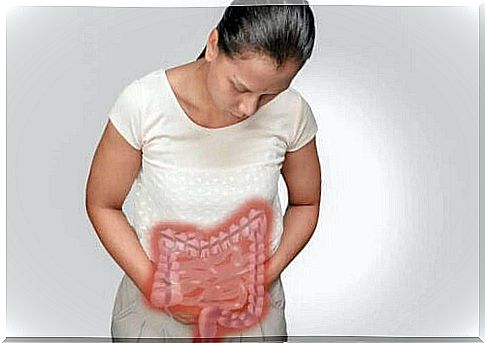
Colon cancer is preventable and curable
The Pan American Health Organization (PAHO) reports colon and rectal cancer ranks fourth among the causes of tumor death in the Americas region. Each year, 96,000 patients die from it. This entity claims that this type of cancer can be avoided by reducing risk factors and increasing prevention.
In addition, PAHO recommends carrying out checks in the population at risk, that is to say from the age of 50, and continuing them at regular intervals until the age of 75 years. Screening tests available for colorectal cancer include examining hidden blood in the stool, sigmoidoscopy, and colonoscopy.
The best prevention of this pathology is a diet rich in dietary fiber. It must also be low in saturated fat from red meat and its derivatives. To this must be added physical exercise and weight reduction.
This helps identify preventively modifiable behaviors, especially in patients with higher risk factors, such as obesity and belly fat. A nutritional consultation does not hurt to establish the parameters when establishing the types and patterns of food consumption.
